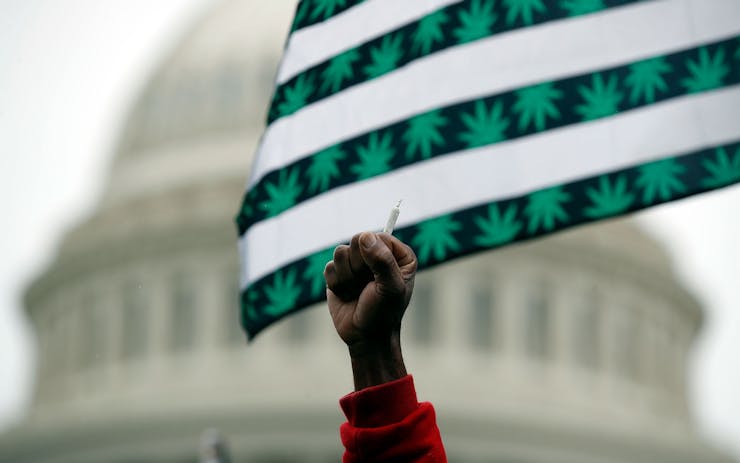Marijuana legalization specifically describes the process of creating laws that permit cannabis use, possession, and/or distribution based on a set of established regulations. Note that medical cannabis legalization only permits cannabis access for those with a medical authorization. Adult-use legalization allows anyone over a particular age to purchase and consume cannabis. Cannabis laws vary among different states and countries.
“In 2013, Uruguay was the first country to legalize cannabis.”
“Advocates are pushing for cannabis legalization for medical patients.”
History of marijuana legalization
Cannabis has been used by humans for thousands of years, but countries began to criminalize its use beginning in the 19th century. Marijuana was banned in the United States in 1937. The Netherlands was among the first countries to lessen penalties associated with cannabis, and it was made available in hallmark coffeeshops in 1976. Though widely tolerated and weakly enforced, cannabis is still not technically legal in The Netherlands except for medical purposes.
California was the first state in the US to officially legalize medical marijuana in 1996, with many more states following suit thereafter. Washington and Colorado were the first states in the US to legalize cannabis for adult use in 2012. The first country to legalize marijuana for adult-use was Uruguay in 2013, and Canada legalized cannabis for adults in 2018.
Difference between legalization and decriminalization
In areas where cannabis has been decriminalized, a person would not be prosecuted for possessing marijuana under a particular amount. For example, The Netherlands has decriminalized cannabis in amounts under five grams. However, cannabis is still technically illegal and there are no designated access points for obtaining it.
With legalization, legal barriers are removed such that adults may purchase and use cannabis. There are laws in place that describe the limits of possession, use, cultivation, and sale. There are many nuances in marijuana legalization, and regulations can differ widely between states and countries. For example, adults over the age of 21 living in Oregon may grow up to four plants for personal use; however, in Washington state, only authorized medical marijuana patients may cultivate cannabis at home.
Difference between medical and adult-use legalization
Cannabis legalization generally occurs on one of two levels: medical and adult-use (aka recreational) legalization.
With medical marijuana legalization, you must first obtain an authorization from a medical profession before you may legally access cannabis. In order to qualify for a cannabis authorization, you must have proof of a medical condition that is approved by the state/country for medical marijuana use.
Adult-use legalization allows any adult over a particular age to possess, consume, and purchase cannabis. One can also obtain a license to legally grow and/or sell cannabis to the public. Some countries and states have limitations on who may purchase cannabis. For example, Uruguay does not permit the sale of cannabis to non-residents of the country.
